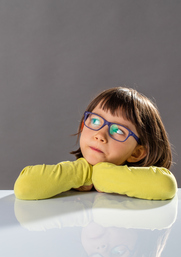Teaching Kids to Think Critically
We live in a time and space where the ability to think critically has become an essential life skill. This doesn’t just apply to adults. Teaching kids to think critically equips them to make sense of the world around them in a more profound and nuanced way. Weaving critical thinking development into their daily life experiences cab be the very key to their lifelong success.
Critical thinking prepares children to approach problems logically and creatively. They need to learn how to slow down, stop, and think about what’s in front of them. And in an age where technology is ubiquitous, tools such as learning programming, engaging in toddlers’ games online, and taking coding courses online can prove instrumental to benefits all facets of their life.
Day-to-day interactions cultivate critical thinking skills, along with open-ended conversations and opportunities to experiment and problem-solve. Moreover, helping children learn coding is another effective strategy. Coding is a lot more than just learning a new language; it promotes logical thinking, problem-solving, and creativity.
Nurture Space for Critical Thinking
Parents and educators play an instrumental role in creating an environment conducive to critical thinking. A home or classroom that encourages curiosity, questions, and exploration becomes a fertile ground for the development of these skills.
Giving children the space and time to think, explore, and find solutions to problems on their own is essential. Providing constructive feedback and recognizing their effort, regardless of the outcome, can reinforce their self-confidence and encourage a growth mindset.
Encourage Open-Ended Conversations
The nature of the questions we ask our children can greatly impact their critical thinking skills. Instead of asking questions with a ‘yes’ or ‘no’ answer, opt for open-ended questions that prompt children to think and express their thoughts freely.
For instance, instead of asking, “Did you like the book?”, ask, “What did you think about the book and why?” This encourages children to articulate their thoughts, evaluate situations, and form opinions.
Incorporate Games and Play
Play is not just a source of fun for kids; it can also be a powerful tool to promote critical thinking. Integrating critical thinking skills into strategy games and creative play can make the learning process enjoyable and engaging.
Toddlers’ games online can be particularly beneficial in this respect, as they often require logical reasoning and problem-solving. Look for games that stimulate creativity, require strategy, and promote decision-making.
Introduce Programming and Coding
It’s no secret that this present day is increasingly dominated by technology. Equipping children with coding skills is not just about preparing them for potential future careers—it also plays a key role in developing their critical thinking.
Learning to code is like learning how to solve a puzzle. It requires logical thinking, patience, and perseverance. Through coding, children can learn to approach problems methodically and devise solutions, thereby enhancing their critical thinking skills.
Encourage Experimentation and Problem Solving
To become proficient critical thinkers, children need plenty of opportunities to practice. Encourage them to experiment and explore different ways of doing things. If they encounter a problem, resist the urge to immediately step in and provide a solution.
Instead, guide them through the problem-solving process, asking questions that prompt them to think of possible solutions. This can help them build resilience, self-confidence, and ultimately, strengthen their critical thinking abilities.
In Conclusion…
Teaching children to think critically is a dynamic process that happens across different contexts and through various strategies. By integrating open-ended questions, games, play, coding, and problem-solving into their daily experiences, we can help them cultivate this vital skill for life. Remember, the goal isn’t to create child prodigies, but to raise future adults who are thoughtful, curious, and able to approach problems with a critical and creative mindset.
Additional Resources:
Learn how project-based learning helps kids think critically and problem-solve while working in a group setting.





